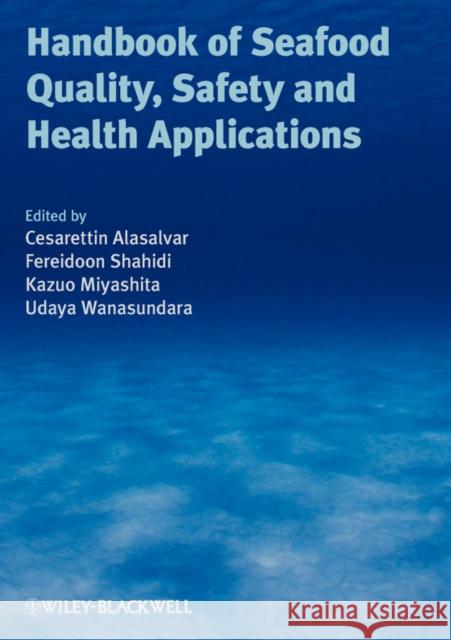Handbook of Seafood Quality, Safety and Health Applications » książka
Handbook of Seafood Quality, Safety and Health Applications
ISBN-13: 9781405180702 / Angielski / Twarda / 2010 / 576 str.
The global market for seafood products continues to increase year by year. Food safety considerations are as crucial as ever in this sector, and higher standards of quality are demanded even as products are shipped greater distances around the world. The current global focus on the connection between diet and health drives growth in the industry and offers commercial opportunities on a number of fronts. There is great interest in the beneficial effects of marine functional compounds such as omega-3 polyunsaturated fatty acids. Seafoods are well-known as low calorie foods, and research continues into the nutritional effects on, for example, obesity and heart disease. In addition, by-products of marine food processing can be used in nutraceutical applications. This book is a resource for those interested in the latest advances in the science and technology of seafood quality and safety as well as new developments in the nutritional effects and applications of marine foods. It includes chapters on the practical evaluation of seafood quality; novel approaches in preservation techniques; flavour chemistry and analysis; textural quality and measurement; packaging; the control of food-borne pathogens and seafood toxins. New research on the health-related aspects of marine food intake are covered, as well as the use of seafoods as sources of bioactives and nutraceuticals. The book is directed at scientists and technologists in academia, government laboratories and the seafood industries, including quality managers, processors and sensory scientists.
The global market for seafood products continues to increase year by year. Food safety considerations are as crucial as ever in this sector, and higher standards of quality are demanded even as products are shipped greater distances around the world. The current global focus on the connection between diet and health drives growth in the industry and offers commercial opportunities on a number of fronts. There is great interest in the beneficial effects of marine functional compounds such as omega–3 polyunsaturated fatty acids. Seafoods are well–known as low calorie foods, and research continues into the nutritional effects on, for example, obesity and heart disease. In addition, by–products of marine food processing can be used in nutraceutical applications.
This book will be a resource for those interested in the latest advances in the science and technology of seafood quality and safety as well as new developments in the nutritional effects and applications of marine foods. It will include chapters on the practical evaluation of seafood quality; novel approaches in preservation techniques; flavour chemistry and analysis; textural quality and measurement; packaging; the control of food–borne pathogens and seafood toxins. New research on the health–related aspects of marine food intake will be covered, as well as the use of seafoods as sources of bioactives and nutraceuticals. The book is directed at scientists and technologists in academia, government laboratories and the seafood industries, including quality managers, processors and sensory scientists.











